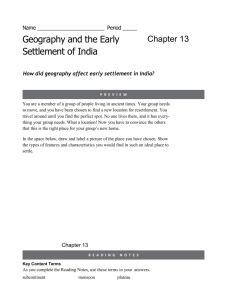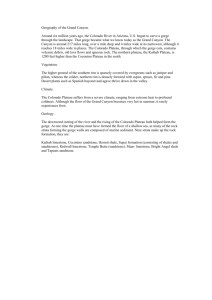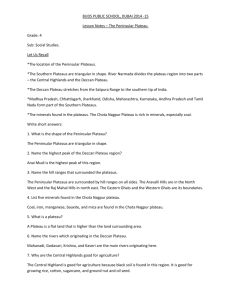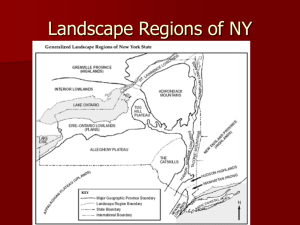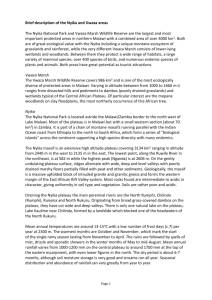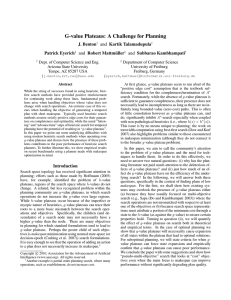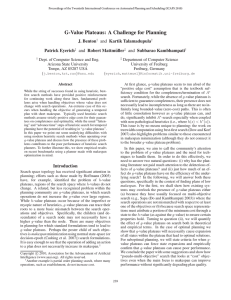Part 1, Activity 3 - Career Plateaus
advertisement
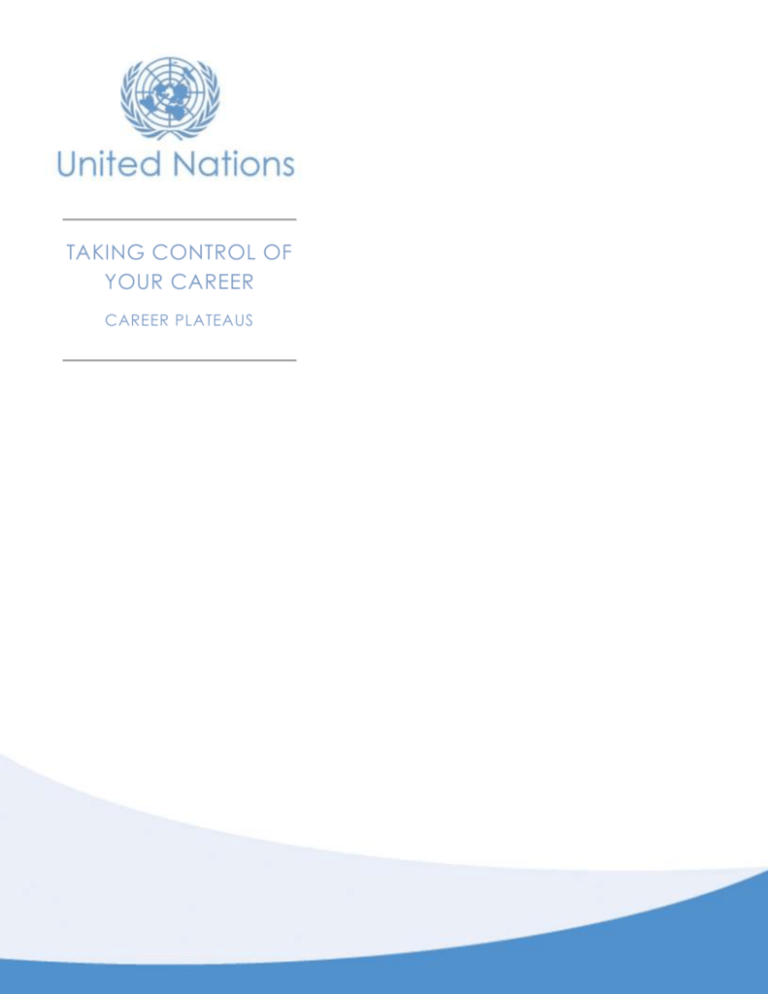
TAKING CONTROL OF YOUR CAREER CAREER PLATEAUS Table of Contents Part 1: Career Planning ACTIVITY 3: Career Plateaus ........................................................................................................................................................ 3 Types of Career Palteaus .................................................................................................................................................................... 3 Do You Feel Stuck?............................................................................................................................................................................... 4 Coping with a Career Plateau ........................................................................................................................................................... 5 Part 1: Career Planning. Activity 3: Career Plateaus. 2 ACTIVITY 3: Career Plateaus Many employees experience being “stuck” at some point in their career when movement up the career ladder slows or seems to stop altogether. Such a “career plateau” is usually caused by the pyramidal structure of the Organization, which typically has fewer positions than aspirants at each higher level. Types of Career Plateaus There are five common types of career plateaus: Structural – You have progressed to a point where the Organization’s structure prevents you from moving up because there is a shortage of rungs on the promotional ladder. Note that individuals usually have little control over this type of plateau and most, if not all, staff members will end up here at some point in their working life. Content – You have mastered your job and there is no longer a sense of challenge. You’re no longer interested in taking on greater responsibilities or transferring to another department. Contribution – You are unable to effectively respond to changing job situations, acquire technological literacy, or effectively discharge the responsibilities associated with the next level up the career ladder. You feel like you have done everything you can to grow professionally, develop new competencies, and add value. Note that individuals usually have a lot of control over the forces which create this type of plateau. It is not inevitable, reduces a staff member’s value to the Organization, and should be avoided at all costs. Damaged reputation – Negative behaviours or events temporarily stall your career progression. Life – Not just your job but your life feels predictable, monotonous, and without meaning. If you find yourself at this plateau, you may need to seek professional help. While a career plateau is often accompanied by feelings of boredom, frustration, loss of enthusiasm, and lack of commitment, it can also be a valuable opportunity to regain perspective and digest new ideas. People respond to career plateaus in different ways. Typical reactions include: Despairing that nothing will change Feeling angry, bored, and frustrated a lot of the time Losing enthusiasm for and interest in work Blaming the Organization Resorting to unhealthy behaviours Accepting the plateau and using it as a motivator for change Part 1: Career Planning. Activity 3: Career Plateaus. 3 Do You Feel Stuck? Instructions: Answer the following questions. You can enter as much text as you want in your response 1. Do you feel like you’re at a career plateau? If so, what type of plateau and how long have you been there? Your response 2. What have you done so far, if anything, to try to move off the plateau? Why hasn’t it worked yet? Your response 3. Sometimes being “stuck” is related to being “invisible” in the office. Senior colleagues are not aware enough of what you are doing. What could you do to make yourself more “visible” in your current job? Your response 4. What could you try in the next 6 months to help you move off the plateau? Your response 5. What support do you need and from whom to take action? Your response Part 1: Career Planning. Activity 3: Career Plateaus. 4 Coping with a Career Plateau The following strategies, many of which are addressed in this workbook, often help individuals move off a career plateau: Taking stock of your existing work experience and skills, your reputation, your interpersonal style, and your “blind spots.” Preparing a plan for acquiring new knowledge and skills, enriching your current job by adding more challenges, and eliminating problem behaviours. Put “moving off the plateau” actions in your calendar! Experimenting with new types of work or responsibilities by volunteering for “stretch” assignments within or outside your work unit. Acquiring new knowledge and skills by going back to school, obtaining a professional certification, or taking advantage of other training courses. Ramping up your networking efforts—putting networking events on your calendar, attending social events; expanding your circle of contacts beyond people you already know, making yourself more “visible,” and regularly setting up “informational Interviews.” Dedicating time each week to looking for new opportunities to change roles within your current department, make a lateral move to a new department, or work for a different UN agency. Restructuring your view of success—moving on doesn’t always mean moving up! Regular promotions aren’t the only way to achieve satisfaction. Pursuing interests and adventures in other aspects of your life may enhance your professional self-esteem and happiness. Part 1: Career Planning. Activity 3: Career Plateaus. 5




